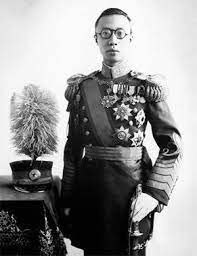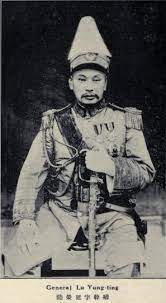Mo Te-hui (1881-17 April 1968), Manchurian official who served as China's chief representative in the 1930-31 Sino-Soviet negotiations concerning the Chinese Eastern Railway. From 1954 to 1966 he served as president of the Examination Yuan in Taiwan. Born in Sinkiang, Mo Te-hui was the son of a general in the imperial forces who came from […]













